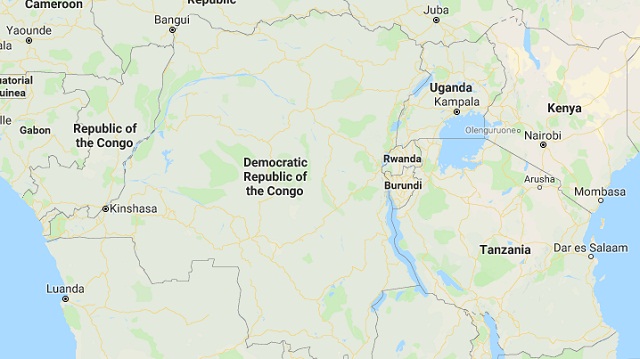
– From Mobutu to Kabila –
In the 1980s and 1990s, Forrest diversified his company’s portfolio, moving into cement and also mining as the lucrative mobile phone market began to take off.
But by 1997, the country’s history took another dramatic turn with Mobutu toppled by rebels led by Laurent Kabila, who renamed the country the Democratic Republic of Congo.
Shortly before Kabila staged his final, ultimately victorious assault on Kinshasa, he passed through Lubumbashi where he encountered the entrepreneur, whose name he apparently knew.
“Are you Forrest?” he is said to have asked on meeting him.
Once in power, Kabila did not ruin Forrest as Mobutu had done with his father — he merely requisitioned his fleet of vehicles.
And two years later, Kabila even appointed him head of the powerful Gecamines state mining company, Congo’s jewel in the crown which exploits the country’s mineral riches, filling the state coffers.
“I reached a deal with Kabila,” the businessman said.
“Every month, Gecamines would officially transfer $4 million to the Central Bank.”
After Kabila was assassinated in 2001, his son Joseph Kabila took over and Forrest resigned from Gecamines and returned to his own business interests.
With the turn of the century, various NGOs began accusing Forrest of looting minerals and reports appeared in the press about alleged arms trafficking, charges he dismisses.
“I have always been in the clear. NGOs, it’s like a question of business — if you don’t fund them, they attack you,” says Forrest, who at the time described himself as the country’s “largest investor and biggest private employer”.
– A bank and some cows –
In 2007, China agreed to lend the central African country billions of dollars to develop infrastructure and mining, and in exchange Kinshasa signed over rights to its extensive natural resources, including millions of tonnes of copper and cobalt.
The deal meant Forrest had to hand over land containing copper and cobalt deposits.
“The Chinese make some very attractive proposals for the country, but how many billions is this costing in raw materials? Proportionately, it’s unfair,” he says.
Now 78, Forrest has handed control of the business empire to his son Malta.
The Forrest Group is highly diversified, from mining and construction to finance and renewable energy, with interests in Kenya, South Africa and Belgium as well as the DRC, according to its website. The group has more than 6,000 employees in Africa.
Forrest still keeps an eye on the BCDC, a bank he bought from France’s BNP, as well as keeping watch over the 38,000 head of cattle on his ranch.
With a new political crisis gripping the country and growing pressure for Kabila to stand down, one of his main rivals for power is former Katanga governor Moise Katumbi, an old acquaintance of Forrest who is living in exile in Brussels.
Katumbi owns one of Africa’s top football teams, TP Mazembe, with Forrest’s son Malta serving as the club’s vice president.
But Forrest insists his friendship with Katumbi is anything but political.
“There’s nothing political about this. The authorities know that very well,” says Forrest, who brushes off any questions about “Moise” and the presidential succession.
 The Independent Uganda: You get the Truth we Pay the Price
The Independent Uganda: You get the Truth we Pay the Price





